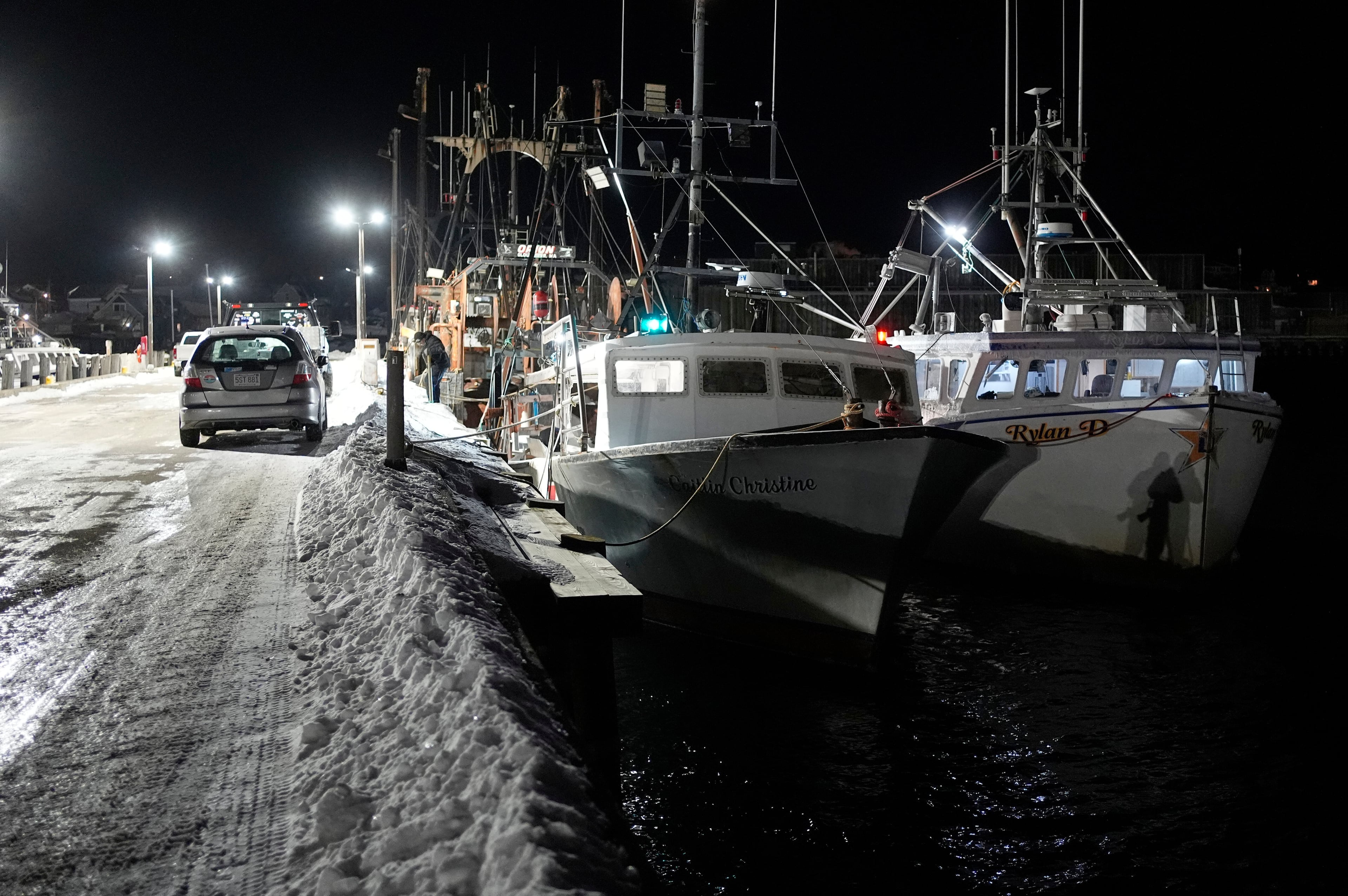At Jimmy Carter’s small Plains church, new pastor looks to expand reach


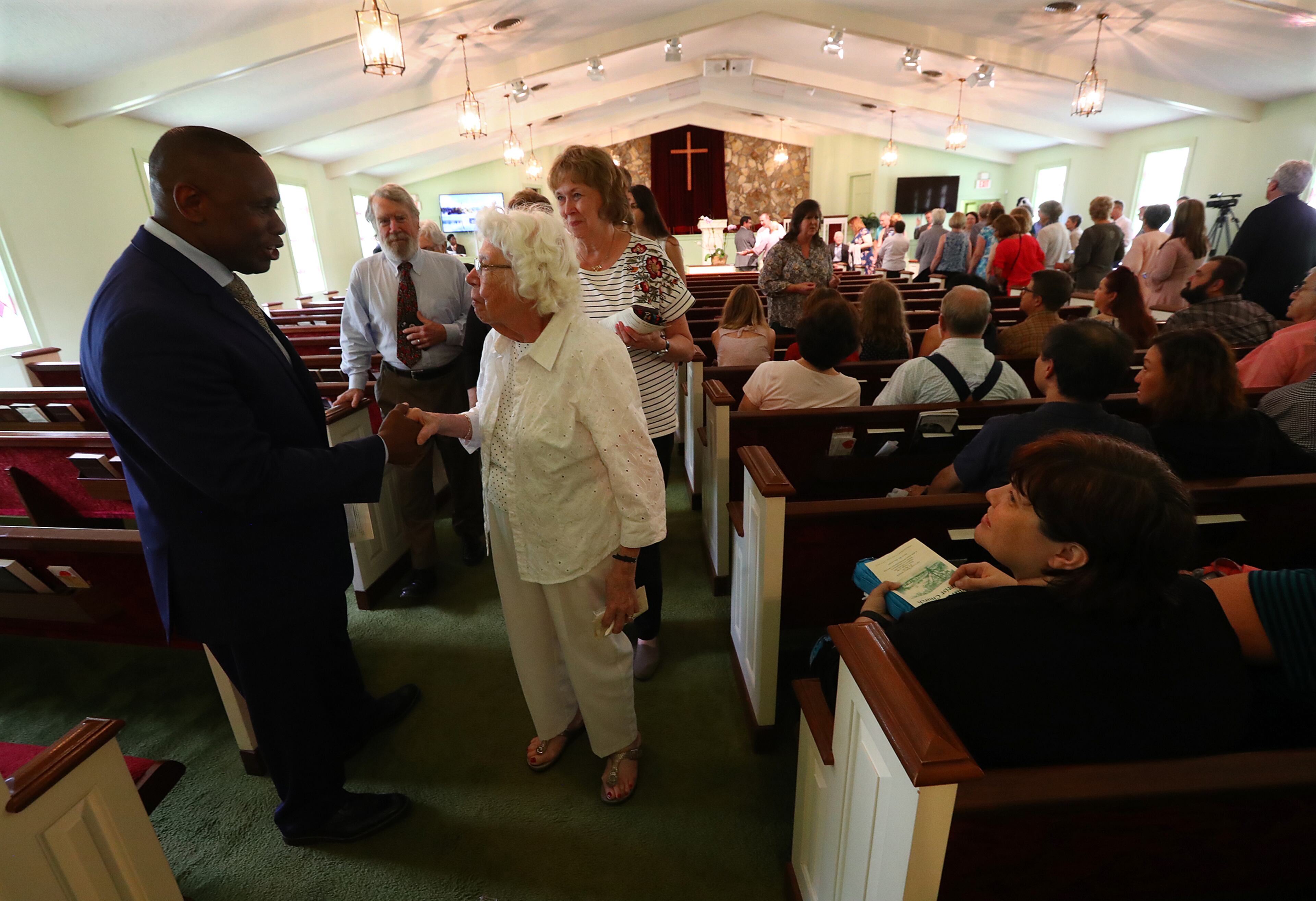










Editor’s note: This article was published in 2019. The Rev. Tony Lowden left the Plains church in 2021 but has continued to pastor former President Jimmy Carter.
Looking out over his congregation last Sunday, Tony Lowden could see the past and future of Maranatha Baptist Church.
On the front row, punctuating lines of Lowden’s sermon with praises of “Amen,” sat 94-year-old Jimmy Carter, Maranatha’s most famous member and a stalwart in the church for more than 40 years.
In the choir stand was Brandon B. Thomas, a 23-year-old music major at Georgia Southwestern State University, one of perhaps half a dozen African Americans who are members of the church.
“I am here to do two things,” Lowden would say later, as he explained his relocation to the tiny community of Plains. “I want to a build the ministry and protect President Carter’s legacy as a servant leader.”
Building that ministry means not just growing the congregation, but reaching out and diversifying. And that’s exactly what Carter had in mind when he talked to Lowden about taking a job far removed from his city and cultural roots.
» June 2019: | Carter returns to teach Sunday school at hometown church
Lowden ministers to a man who is a former president, but also is one of the country’s most prominent evangelical Christians and humanitarians, a man who’s long pushed the importance of inclusiveness and equality as he’s tried to live out his ideals.
Not lost is the fact that Lowden is Maranatha’s first black pastor.
“God sent him at the right time to our church,” said longtime church member Mashuq Askerzada, a native of Afghanistan. “This pastor is trying to conquer those racial barriers. He is already proving to do a lot of good things. We have been praying for a leader like him.”
From Philadelphia to Plains
Tony Lowden, 52, knew that 2019 was going to be hectic.
His wife, Pilar, had just given birth, and they were deeply rooted in the Macon-Bibb County area, where they had started an enrichment program for at-risk children while he worked as a youth director at Fellowship Bible Baptist Church in Warner Robins.

Before, the Philadelphia native pastored Strong Tower Fellowship, growing the membership from 18 to 300 in six months, and served as youth pastor at Lundy Chapel Missionary Baptist Church in Macon.
“I have always been in the ministry, but I never did it full time until I moved to Georgia. I was trying to save young people,” said Lowden, who is also on the State Charter School Commission and served as the director of the faith and justice initiative for the Governor’s Office of Transition Support and Reentry. “I never went seeking a congregation.”
But a congregation sought him.
Located about 160 miles south of Atlanta, the town of Plains boasts on its official website that it is “Home of the 39th President & Peanut Festival.”
It’s the kind of community where longtime mayor L.E. “Boze” Godwin III rides around looking for lawns to cut.
There are no gas stations or hotels or public schools, and just a few restaurants.
The town is a far cry from the Philadelphia neighborhood where Lowden grew up, surrounded by gangs, open-air drug markets and violence. He vividly remembers the day in 1985 when city police, attempting to execute arrest warrants, got into an armed standoff with members of the black liberation group MOVE and ended up dropping a bomb on the rowhouse they occupied. Eleven people, including five children, were killed, and more than 60 houses were destroyed in the resulting fire.
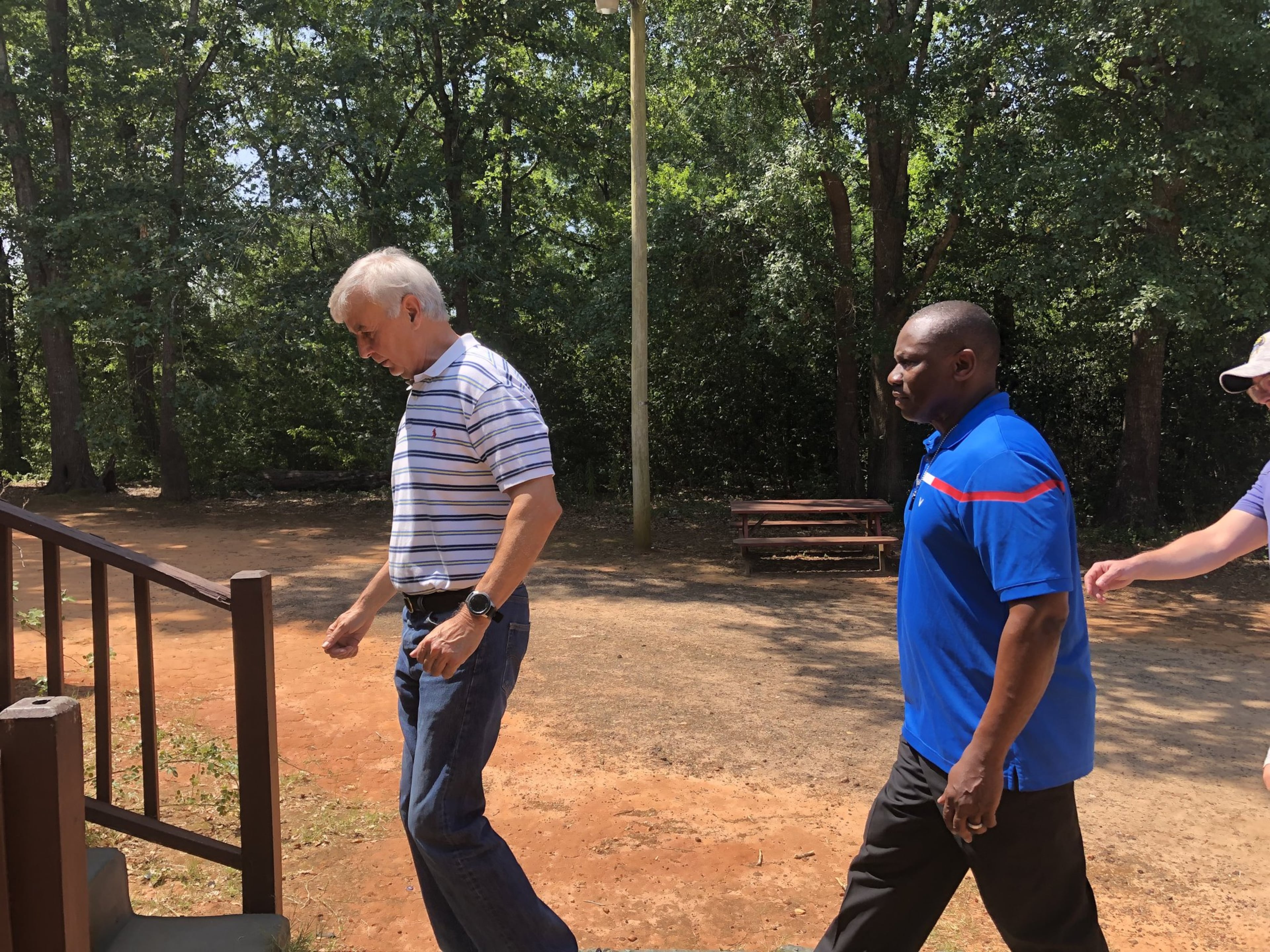
As Lowden was maneuvering the mean streets of Philly, Carter was maneuvering life after the White House. He was overseeing the opening of the Carter Center in Atlanta and working on proposals to get his home, railroad station campaign headquarters, old high school and other Plains sites into the national park system.
The call
With only around 775 residents in Plains, Carter is obviously a big deal. His name and image are all over town. Everyone knows him, and he knows everybody.
His church, Maranatha Baptist, rose in 1977, after several members split from Plains Baptist Church.
The year before, Plains Baptist had voted against allowing blacks to join. The handful of families that left to form the Maranatha congregation had expressed an interest in welcoming members of all shades and tourists, who, with Carter’s ascension to the White House, were suddenly flocking to the rural community.
During his presidency, Carter would attend Sunday school at Plains Baptist and worship at the new church. In 1981, when he was out of office, he switched his membership to Maranatha.
Today, Maranatha has between 130-150 members, mostly white, on its rolls. About 30 to 40 people attend church on a typical Sunday.
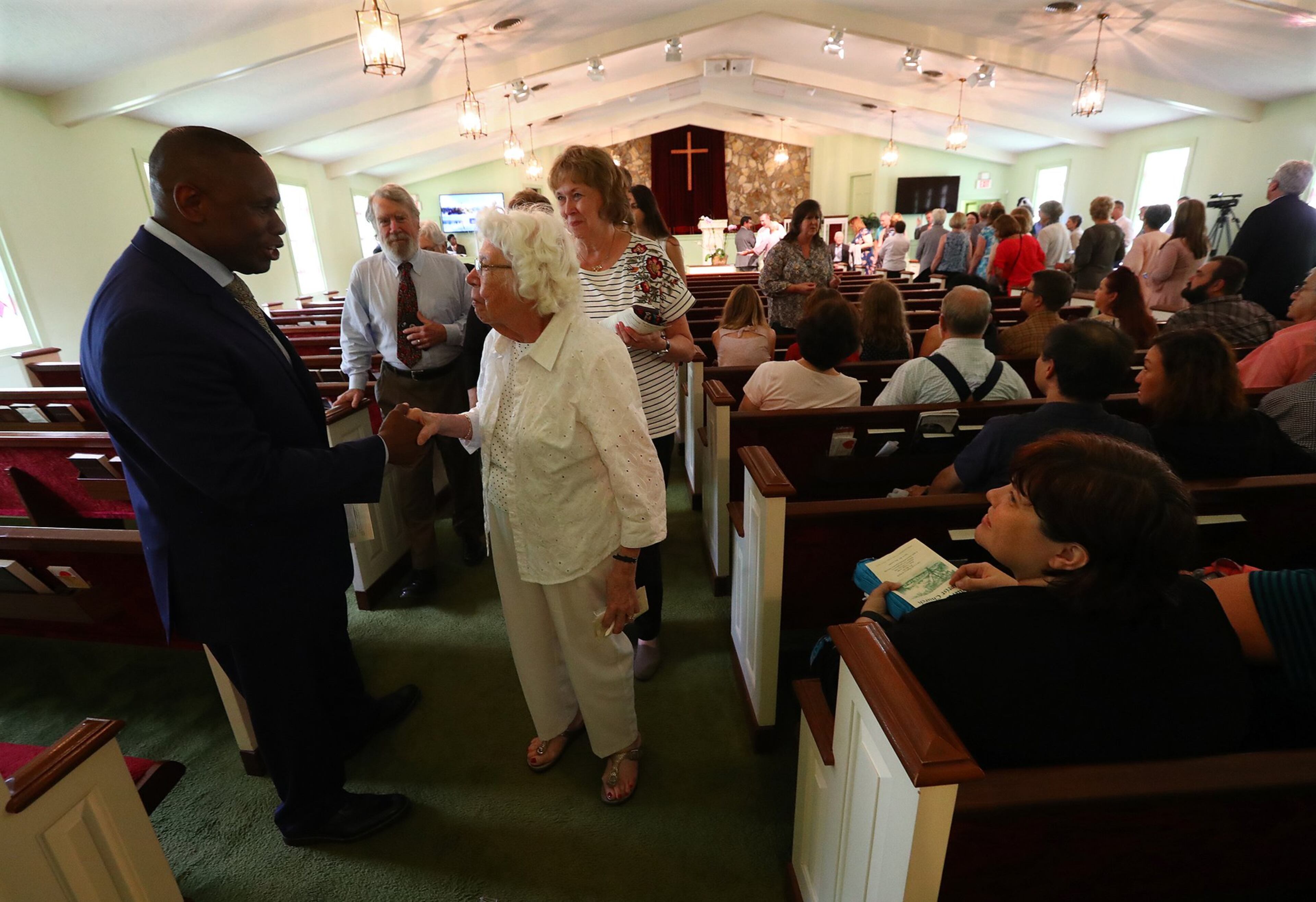
In late March, Lowden got a call from Doug Unger, who was representing Maranatha. The church’s pastor had resigned, and Unger wanted to know if Lowden could preach as a guest on March 24.
“I just thought he would bring all kind of different energy,” said Unger, who’s also the state chairman of Kairos Prison Ministry of Georgia and had heard Lowden speak on prison reform and re-entry. “I really thought Tony would be somebody that we all would like to hear, because he would bring a fresh perspective to Maranatha.”
The minister’s wife, Pilar, had commitments at their home church and couldn’t come. But Lowden agreed and gave his sermon while Carter sat in his seat in the front row.
Later that day, Lowden got a call from church officials.
“Did I do something wrong?” Lowden thought. “Did I upset the president?”
No.
Unger said he “blew them out the water,” and they wanted to hear his views on key topics like women in church leadership positions and the role of gays in the church.
“I told them that everyone is welcome in the church,” Lowden said.
The next day, Lowden was talking on the phone so he ignored an incoming call.
When he finally listened to the call, it was a :31 second message from Carter. “Would you be interested in being the interim pastor? And if it works out, we’d like you to be our pastor?” he asked.
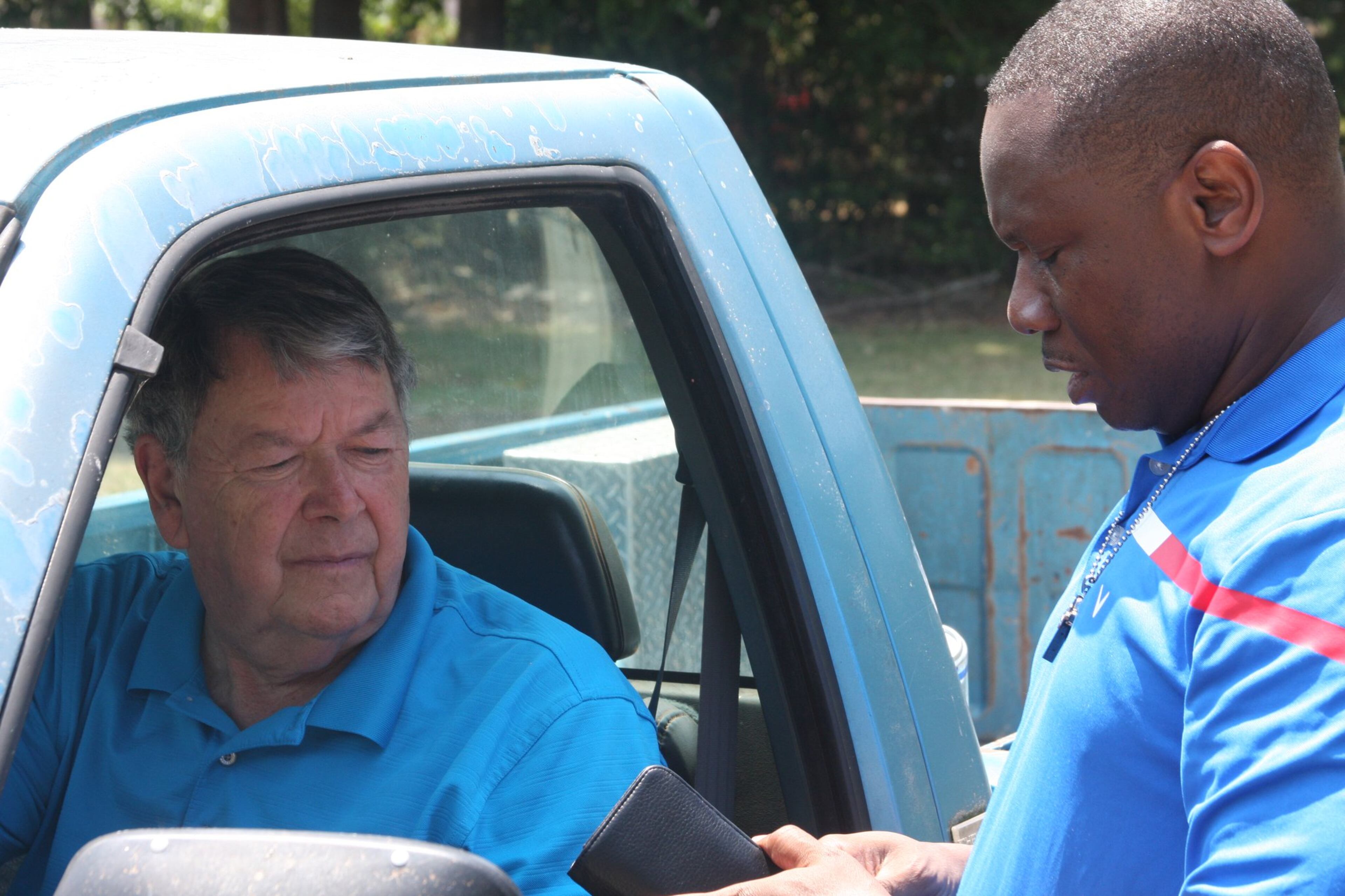
The former president liked Lowden from the start. “He’s an excellent preacher and leader, and I was delighted to be the one to call him and tell him we wanted him to be our pastor,” Carter said Thursday. “He’s a student of Scripture who helps us understand how the teachings of the Bible apply to our lives and society today.”
Lowden was shocked by the offer.
“I had to pull over on the side of the road,” said Lowden, who saved the message and plays it often. “This was a curveball, the biggest blessing in my life.”
Serving the community
When Lowden was hired, Carter asked him to do three things, or rather told him: visit both black and white churches, visit hospitals and be a presence in the community.
A little more than 40 percent of the population of Plains, which has a nearly even split in the number of black and white residents, lives below the poverty line. The median household income is $21,731.
That is part of the reason Lowden found himself exploring some of Plains’ poorest areas two weeks ago, delivering boxes of food.
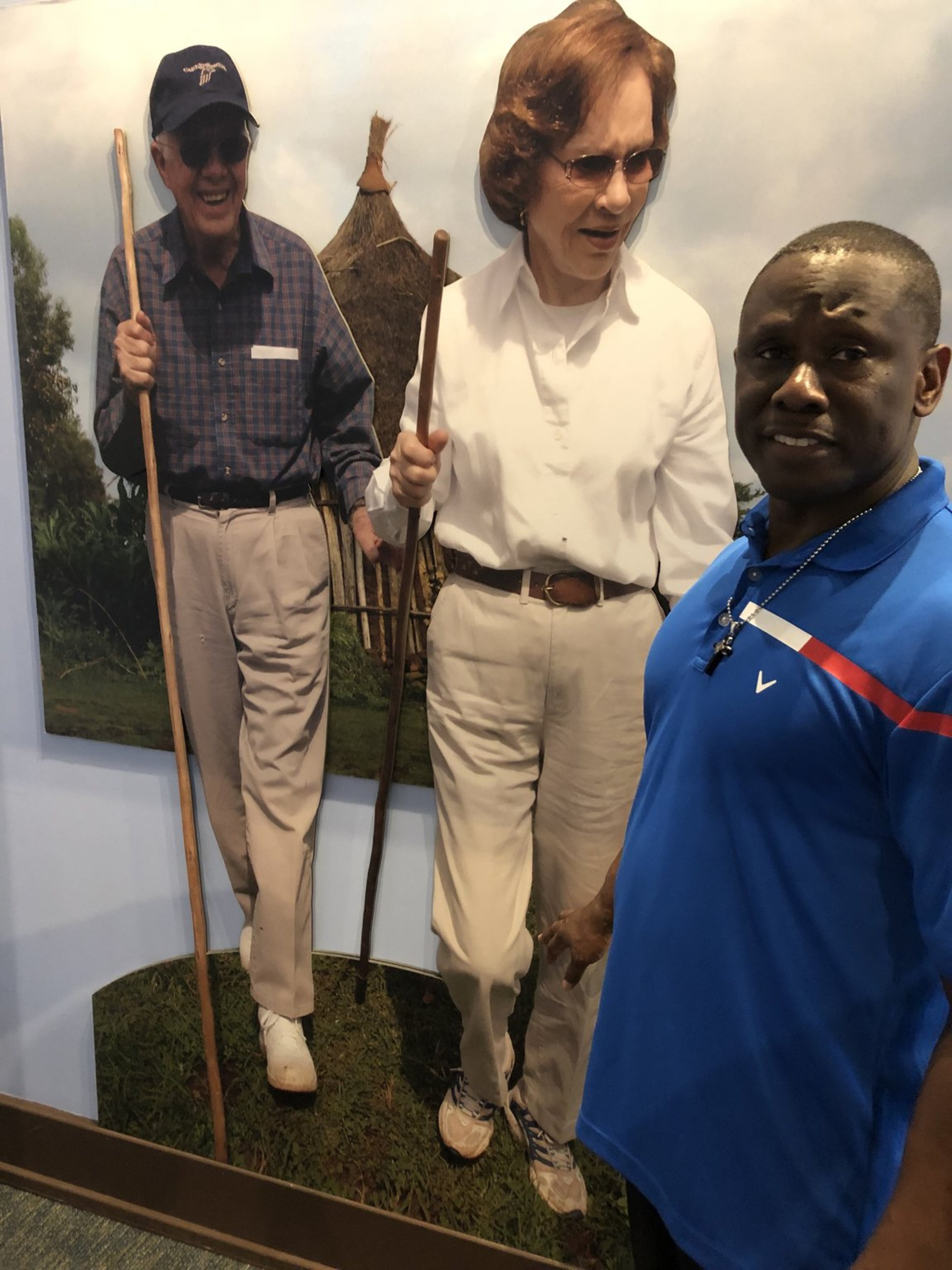
He and Ken Sosnick traveled to a food pantry in Americus, where they loaded groceries onto church member Askerzada’s truck, before making the 10-minute drive back to Plains.
“I see a lot of me walking into some of those houses,” Lowden said. “The smell of cigarettes. The beer cans in the yard. The extreme poverty. Seniors dying from neglect. That was all in my family.”
Lowden never met his father. His mother raised her children on public assistance and mayonnaise sandwiches. Sometimes, they had Kool-Aid with no sugar. Other times, they had sugar water with no Kool-Aid.
It’s easy for him to sympathize with the 10 families that Maranatha’s members typically deliver groceries to each month. Easy for the Carters, too.
Askerzada joined the church in 1988 and worked with Rosalynn Carter on the food delivery projects. Every house they go to, Askerzada said, has been visited at some point by the Carters.
At the first stop on Lowden and Askerzada’s route, a woman sits in the middle of her living room going through mail and dumping junk into a huge trash can placed between her and the television.
At another house, a woman sits in the corner, on oxygen, while a grandson darts in and out of the room. She’s not officially on the list to get a box of food, but they give it to her anyway. She is not well enough to leave the house.
Lowden jokes with both women that he is going to start drinking the water in Plains if it will make him live as long as they have. Before he leaves the houses, he prays with each of them.
An accomplished athlete who, at times, talks like a coach, Lowden was particularly direct with three black males he encountered.

When a 14-year-old he handed a box to made the mistake of not looking at him, Lowden had some advice: A man should always look another man in the eyes.
He recoiled when an older man told him he needed permission from his “boss man” to do something. “You have a boss. Not a boss man,” Lowden told him. “Those days are over.”
To a one-time local basketball star who is in need of a heart transplant and racked with worry over the possibility of losing his home, Lowden offered this:
“Jock to jock,” he said, looking into the man’s eyes, “don’t leave nothing on the court. We are going to fight this.”
With one extra box of food, they pulled up to the home of a woman sitting on her porch. She quickly retreated to her doorway.
They offered her groceries, but she refused, saying others needed it more. She added that she still had food that President Carter had left on an earlier occasion, though no one could remember the last time Carter had visited her.
“It’s embracing time in my heart,” she told Lowden.
“What is your name?” Lowden asked.
“My name is Ruth,” she responded.
“That is my mother’s name,” he said.
The challenge
Ruth Ann Lowden raised Tony and his younger five siblings in North Philadelphia.
An uncle would sit him on the porch and make him listen to Philadelphia Phillies games. An aunt convinced Tony to go to church every Sunday with the promise of banana pudding. So, he played baseball and went to church.
“I watched what drugs and alcohol did to people. I watched what it did to people in my family,” Lowden said. “I wanted to get out of Philly because, if I didn’t get out, I was going to die there. Most of the men I grew up with are dead or in jail.”
Lowden escaped Philadelphia to Los Angeles, where he played baseball at the University of Southern California. He moved to Georgia about 13 years ago.
Last Sunday, a power outage had rendered the air conditioning useless at Maranatha, and the microphone wasn’t working either. So Lowden promised not to preach too long. He didn’t wear a robe, but a dark suit and bronze tie. Sweat rolled down his face as he prowled the stage, making sure that everybody could clearly hear him preach about “Embracing Time.”
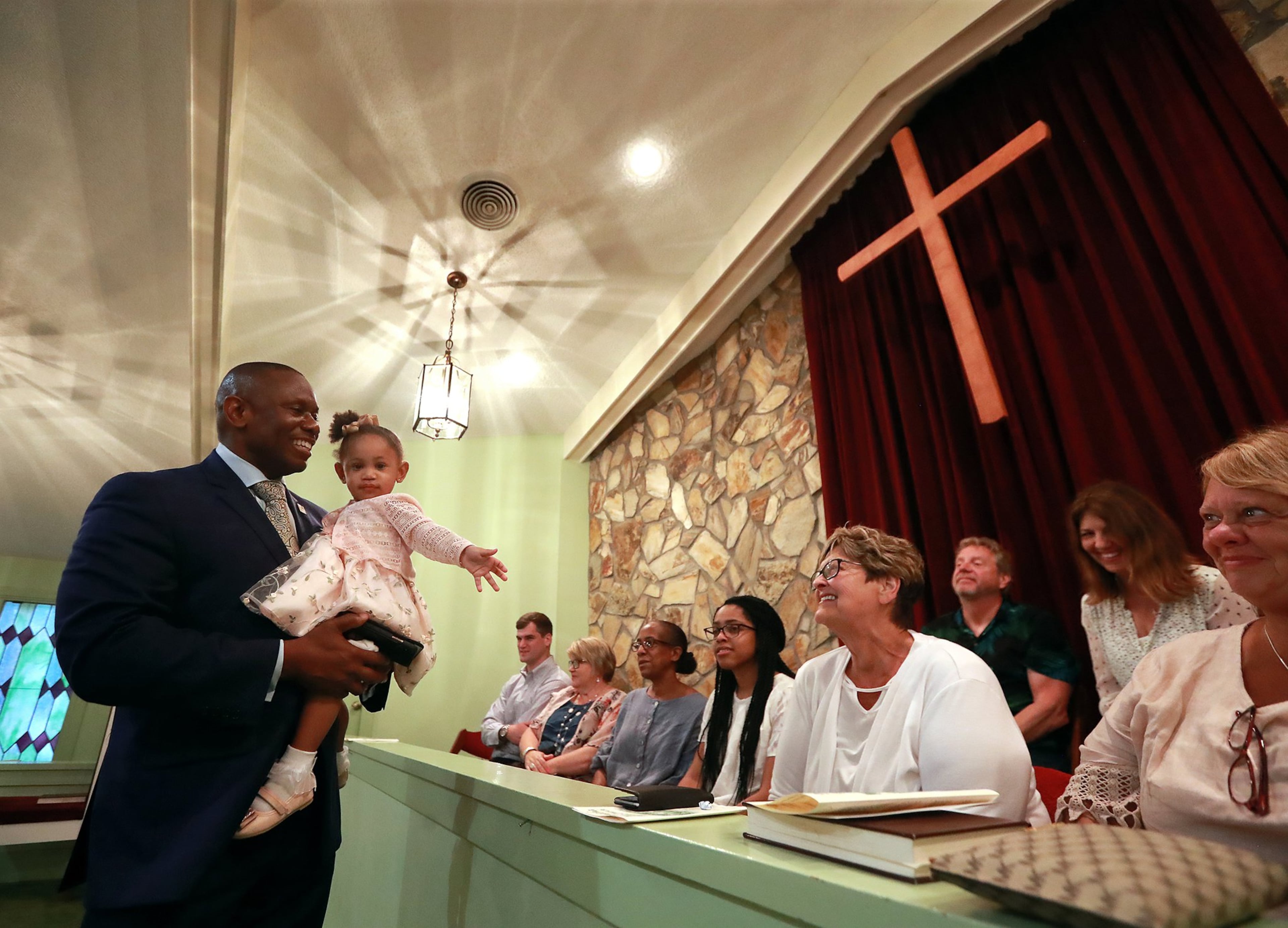
Pilar, a dance instructor, brought in for a performance a team of young black girls she’s training in Macon.
From his seat on the front row, with Rosalynn beside him, Carter sat and smiled throughout the service.
Following traditional hymns, Thomas, the college student studying music, took over on piano and sang, “You Deserve It,” a contemporary gospel song.
Thomas had performed at Maranatha earlier in the year. He came back to Plains for another event later and met the new preacher, Lowden. They talked about the church, and Thomas said he was eager to find a new church home.
“Who wouldn’t want to be a part of that ministry to preserve the legacy of President Carter? And I love Pastor Tony’s heart,” said Thomas, who joined the church two weeks ago. “Rev. Lowden and President Carter have been the best mentors I ever had in my life.”
Still Lowden knows the challenge in building. About 40 will be in church this Sunday. More than 400 people were there the previous week, largely because Carter was returning to teach Sunday School — which he does about twice a month — after breaking his hip.
The former president cast a huge shadow.
Lowden reminded the hundreds there last Sunday that coming to Maranatha is not just about coming to see the Carters.
“That is not what he is looking for. That is not what he is teaching about. That is not him,” Lowden said, looking at Carter.
Coming to church is about building a strong community, spreading love and acknowledging the responsibility we have to each other, Lowden believes.
“To know the man,” he said, “you gotta know his spirit. You can’t have Jesus in your heart without love.”
“Amen,” shouted Carter.

